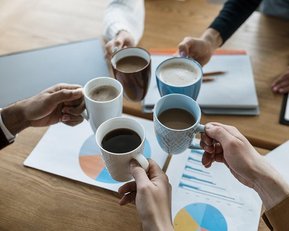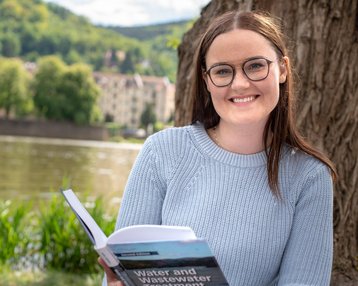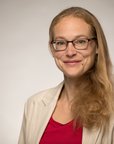
On March 22, 2023, 3rd International World Water Day Conference was convened. The WWD was formed in 2021 by the Department of Water Technology at SRH University in Heidelberg to foster research & academic discourse in all fields of water sciences.
On March 22, 2023, 3rd International World Water Day Conference was convened. The WWD was formed in 2021 by the Department of Water Technology at SRH University in Heidelberg to foster research & academic discourse in all fields of water sciences.

The conference's principal goal was to boost the battle against water shortages and to promote water reuse for human and environmental needs, particularly in dry and critical areas of the world. Prof. Dr. Mohamad Ghomi organized the conference in collaboration with Team Masters in Water Technology as part of his DAAD guest professorship and Prof. Dr. Ulrike Gayh, the dean of Masters in Water Technology.
The conference also marked the start of two significant water technology projects: the DAAD project Democratia-Aqua-Technica and the YIP - Your Ideas to Practice II project part of Baden-Württemberg-Stipendium for University Students – BWS plus, a program of the Baden-Württemberg Stiftung. The DAAD project Democratia-Aqua-Technica aims to transform local and regional water conflicts into pathways to peace and democracy incorporating innovative science and technology approaches. The YIP II project, on the other hand, focuses on Global strategy and with the aim of doing justice to the worldwide relevance of water conflicts, the HSHD and UNIVA are striving in the next step to expand their hitherto marginal contacts with African universities; in this way, the insights gained by students at YIP 2021 will also be expanded to a global perspective and Kwame Nkrumah University of Science and Technology (KNUST) in Ghana has joined the YIP II project.
The conference drew a wide spectrum of scholars and academicians from around the world, who presented their research findings and offered their experience on various areas of water conservation, management, pollution, scarcity, and droughts. The conference also showcased the most recent methods and technologies in water treatment, wastewater treatment, and nutrient management. The conference also highlighted the latest methods and technologies in water treatment, wastewater treatment, nutrients recovery, grey water reusing, biogas and energy production by wastewater recovery, biofiltration, and algae culture in water and wastewater treatment.
The conference started with an introduction by Prof Dr. Ulrike Gayh Dean of Water Technology from SRH University in Heidelberg, who emphasized the importance of water conservation, management, and reuse. The first presentation by Jelena Antović, Nataša Elezović, Miljan Šunjević, Mirjan Vojinović Miloradov, and Vladimir Rajs from the University of Novi Sad in Serbia focused on the effect of Construction sites Particulate Matter (PM10 and PM2.5) on the Danube aquatic water system in the city of Novi Sad by Tatjana Mijošek, Zrinka Dragun, Zorana Kljaković-Gašpić, Damir Valić, Tomislav Kralj, Sara Šariri, Zuzana Redžović, Ivana Karamatić, and Vlatka Filipović Marijić from the Ruđer Bošković Institute in Zagreb, Croatia, presented the findings of their research on the dissolved and total metal concentrations in water of the karst Krka River, bioavailability, and the influence of industrial wastewaters.
The presentations continued with topics such as Flood Modelling of Subernarekha River Using HEC-RAS by Shahnawaz Ahmed and Manoj Kumar Diwakar from Malaviya National Institute of Technology Jaipur, India, Impact of municipal and industrial wastewaters on microplastic exposure and toxic effects of karst river water by Sara Šariri, Želimira Cvetković, Damir Valić, Tomislav Kralj, Tatjana Mijošek, Ivana Karamatić, Zuzana Redžović, and Vlatka Filipović Marijić from the Ruđer Bošković Institute, Croatia, and Discharge Estimation of Non-Prismatic Compound Channels by Sandeep Kumar and Manoj Kumar Diwakar from Malaviya National Institute of Technology Jaipur, India.
The conference also included a coffee break and a poster session with lectures. The poster session covered a wide range of topics such as Evaluating the Influence of Agriculture on Groundwater Chemistry in the Plio-Quaternary Aquifer of Nador (Tipaza) by Abdelkader Bouderbala from the University Djilali Bounâama of Khemis Miliana, Algeria and the Evaluation Of Water Quality And Its Suitability For Rural Communities In Southern Nigeria by Okey-Wokeh Uchechukwu Chukwuebuka from the University of Nigeria, Nsukka.
The conference ended with a discussion of the role of universities against water shortage and pollution by A. Yalali, R. Bustamante. Participants presented their research and discoveries on diverse themes relating to water conservation, management, pollution, scarcity, and droughts at the conference's poster session. This session allowed guests to communicate with one another and learn more about current research in the subject of water sciences and technologies.
One of the conference's primary themes was the urgent need for new and innovative water treatment and conservation technology. With water shortage rising in many regions of the world, it is critical to discover new technologies for recycling water and decreasing waste. The possibility of greywater reuse, biogas and energy production from wastewater recovery, and biofiltration and algae culture in water and wastewater treatment were also discussed at the conference.
Another key topic covered at the meeting was nutrient recovery from wastewater treatment. As food demand grows, it is critical to find techniques to recycle nutrients from wastewater and reuse them in agriculture. This not only serves to minimize the strain on freshwater resources, but it also helps to reduce agriculture's environmental impact.
The conference also stressed the importance of appropriate water management methods and the influence of human activities on water resources. This involves assessing the quality of water and its suitability for rural people in Southern Nigeria, as well as employing remote sensing techniques to analyze agricultural drought in Rajasthan. The conference debated colleges' roles in tackling the issue of water scarcity. pollution and emphasized the need for collaboration between universities, researchers, and policy-makers to find sustainable solutions.
Overall, the 3rd International World Water Day Conference provided an excellent platform for researchers, academicians, and industry professionals to exchange knowledge and ideas on water sciences and technologies. It highlighted the urgent need for innovative solutions to address the issue of water scarcity and pollution and emphasized the role of universities in finding sustainable solutions. The conference concluded with a sense of hope and determination to work together towards a better future for water management and conservation. The conference and the projects launched during it will provide a foundation for future water technology research and development efforts, contributing to a sustainable future for all.

School of Engineering and Architecture | Professor of Environment and Process Engineering | Study Programme Director Water Technology (M.Eng.)
Discover your degree programme up close! Book your taster session now!